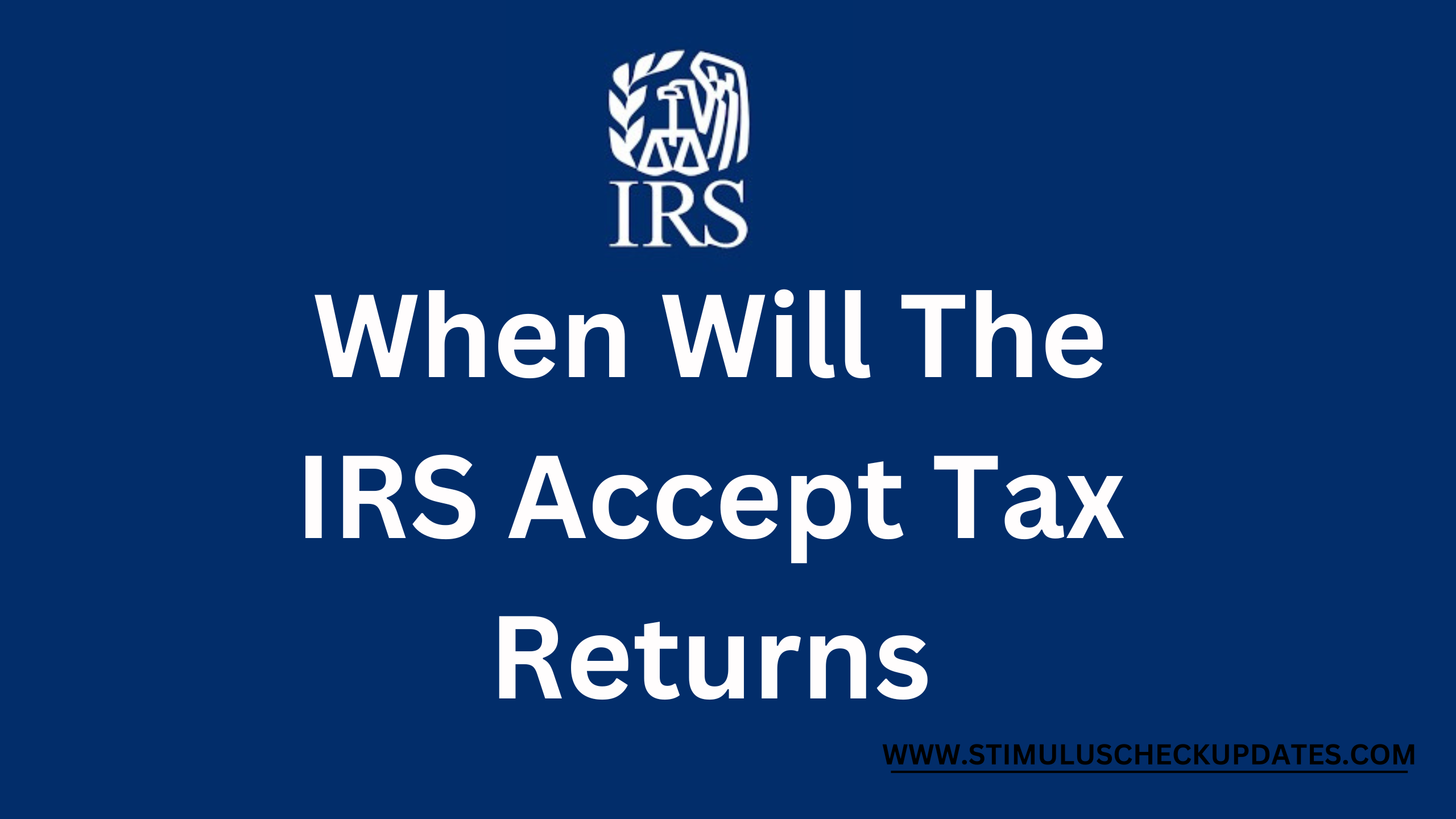2024 Tax Filing Season
The Internal Revenue Service (IRS) has established key dates and guidelines for the 2024 tax filing season. This comprehensive guide will help you understand when and how to file your 2024 tax return effectively, ensuring you receive any refunds as quickly as possible.
Key Filing Dates for 2024
The IRS typically begins accepting and processing tax returns in late January. For the 2024 filing season:
- Expected start date: Late January 2024
- Filing deadline: April 15, 2024
- Extended deadline: October 15, 2024
Preparing for Early Tax Filing
Benefits of Filing
Filing your taxes early offers several advantages:
- Faster refund processing
- More time to pay any owed taxes
- Reduced risk of tax identity theft
- Earlier financial planning opportunities
Required Documentation
Gather these essential documents:
- W-2 forms
- 1099 forms
- Mortgage interest statements
- Charitable donation receipts
- Educational expense records
- Healthcare coverage information
E-Filing vs. Paper Returns
Electronic Filing Benefits
The IRS strongly recommends e-filing because:
- Faster processing times
- Reduced error rates
- Quick confirmation receipt
- Secure transmission
- Faster refunds
Paper Filing Considerations
If you must file by paper:
- Allow extra processing time
- Use certified mail
- Keep copies of all documents
- Follow precise formatting guidelines
Understanding Tax Return Processing Times
E-File Processing Timeline
For electronic returns:
- Initial processing: 24-48 hours
- Refund processing: 21 days or less
- Direct deposit availability: 1-5 days after approval
Paper Return Timeline
For paper submissions:
- Initial processing: 4-6 weeks
- Refund processing: 6-8 weeks
- Check mailing time: 1-2 weeks additional
Tax Return Options
Direct Deposit Benefits
Choosing direct deposit for your refund:
- Fastest refund method
- Secure transaction
- Multiple account options
- No lost check risks
Paper Check Considerations
If selecting a paper check:
- Longer delivery time
- Need for physical deposit
- Potential mail delays
- Check processing time
Common Filing Delays and Solutions
Reasons for Processing Delays
Watch for these common delay causes:
- Missing information
- Incorrect Social Security numbers
- Math errors
- Incomplete forms
- Identity verification needs
How to Avoid Delays
Take these preventive steps:
- Double-check all entries
- Use tax preparation software
- Submit all required forms
- Respond promptly to IRS notices
Special Considerations for 2024
Tax Law Changes
Important updates for 2024 returns:
- New tax brackets
- Standard deduction changes
- Credit adjustments
- Retirement account limits
COVID-19 Impact
Ongoing pandemic considerations:
- Relief payment reporting
- Work-from-home deductions
- Healthcare expenses
- Charitable contributions
Filing Status Changes
Life Events Affecting Returns
Consider these status changes:
- Marriage
- Divorce
- Child birth
- Death in family
- Job changes
Updating Your Information
Steps to update your status:
- Notify Social Security Administration
- Update IRS records
- Modify withholding
- Adjust estimated payments
Tax Credits and Deductions
Available Credits for 2024
Common tax credits:
- Child Tax Credit
- Earned Income Credit
- Education credits
- Energy efficiency credits
Standard vs. Itemized Deductions
Choosing your deduction method:
- Standard deduction amounts
- Itemization thresholds
- Record-keeping requirements
- Calculation methods
State Tax Return Considerations
State Filing Deadlines for tax returns
Check your state’s requirements:
- Match federal deadline
- Earlier due dates
- Extended filing options
- Processing timeframes
State-Specific Credits
Research available state benefits:
- Property tax credits
- Education benefits
- Child care credits
- Local tax incentives
Professional Tax Help
When to Seek Assistance
Consider professional help if:
- Complex tax situation
- Major life changes
- Business income
- Investment complications
Choosing Tax Professional
Select qualified help through:
- Verify credentials
- Check references
- Compare services
- Review fees
Filing Extensions
How to Request More Time
Extension request process:
- File Form 4868
- Submit before deadline
- Pay estimated taxes
- Confirm extension approval
Extension Limitations
Understanding restrictions:
- Payment still due by April 15
- State extension requirements
- Interest and penalties
- Maximum extension period
Frequently Asked Questions
Common Tax Filing Queries
Q: When is the earliest I can file my 2024 taxes? A: The IRS typically begins accepting returns in late January 2024.
Q: How long will my refund take? A: E-filed returns with direct deposit usually receive refunds within 21 days.
Q: What if I need to file an amended return? A: Use Form 1040-X within three years of the original filing date.
[Additional FAQs to be added based on your request]
Tax Payment Options
Payment Methods Available
Ways to pay taxes:
- Direct bank payment
- Credit/debit card
- Payment plan
- Wire transfer
Payment Plans and Installments
If you can’t pay in full:
- Apply for installment agreement
- Request short-term extension
- Consider offer in compromise
- Calculate penalties and interest
Security and Identity Protection
Protecting Your Tax Information
Safety measures:
- Use secure internet
- Protect Social Security number
- Choose reputable preparers
- Monitor tax records
Identity Theft Prevention
Preventive steps:
- File early
- Use strong passwords
- Monitor credit reports
- Report suspicious activity
Conclusion
Understanding when the IRS will accept 2024 tax returns helps you plan effectively and avoid delays. Remember these key points:
- Expected acceptance begins late January 2024
- E-filing provides fastest processing
- Gather documents early
- Watch for tax law changes
- Consider professional help if needed
- Protect your identity
- Choose direct deposit for fastest refund
Stay informed of any IRS announcements and prepare your documentation early for a smooth filing experience.

